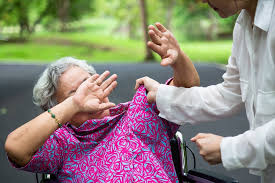Introduction

Elder abuse is a critical issue that affects some of the most vulnerable individuals in our society. California Penal Code 368 specifically addresses this form of abuse, providing clear definitions, stringent penalties, and grounds for legal defenses. This legislation is designed to protect persons aged 65 and older from physical, emotional, and financial abuse. Understanding the nuances of this statute is crucial, not only for Orange County criminal defense attorneys but also for caregivers and community members to help ensure the safety and dignity of the elderly population.
Understanding California Penal Code 368 Elder Abuse
Definition of Elder Abuse
Elder abuse under California Penal Code 368 refers to various forms of mistreatment directed towards individuals aged 65 and older. This mistreatment can be physical, emotional, financial, or neglectful in nature, actively inflicted or resulting from negligent care. The law seeks to protect the elderly, who are often considered more vulnerable due to possible physical frailty or cognitive impairments. Elder abuse can be prosecuted as either a misdemeanor or a felony, depending on the severity of the act and the specific circumstances involved. Significantly, the statute not only addresses abuse from caregivers and family members but also from anyone who knows that the victim is an elder and directly causes unjustified physical pain or mental suffering.
Examples of Elder Abuse

Elder abuse can manifest in multiple ways, often depending on the dynamic between the abuser and the elderly person. Some common examples include:
– Physical Abuse: This could involve striking, hitting, or inflicting other physical harm onto the elder.
– Emotional Abuse: This form of abuse might include verbal assaults, threats, or other actions that inflict emotional pain or distress.
– Financial Exploitation: Unauthorized use of an elderly person’s funds, properties, or assets constitutes financial abuse. This can range from stealing cash to illegally or improperly using their financial accounts or properties.
– Neglect: Failing to provide basic necessities such as food, shelter, medical care, and hygiene, neglect is a common form of elder abuse. It often results from caregiver omission rather than direct action.
– Sexual Abuse: Engaging in non-consensual sexual contact of any kind with an elderly person.
– Abandonment: The desertion of an elderly person by an individual who has assumed responsibility for providing care or has physical custody of the elder.
Each of these types of abuse can lead to prosecution for elder abuse by the Orange County District Attorney. The complexities of the law make it critical for an accused to consult with an experienced Orange County criminal defense lawyer.
Legal Defenses in California Penal Code 368 Elder Abuse Cases

Strategies used by Orange County criminal defense lawyers in elder abuse accusations are crucial for the accused as convictions can lead to severe penalties, including long prison terms, hefty fines, and lasting damage to personal reputation.
Lack of Evidence
One of the most potent defenses employed by criminal defense lawyers is the argument that there is insufficient evidence to support the claims of abuse. This could involve demonstrating that the injuries or signs of neglect alleged by the prosecution are unrelated to the accused’s actions or inactions, possibly occurring due to other medical or environmental factors. Defense attorneys may also challenge the reliability of witnesses or the legitimacy of financial transaction records purported to demonstrate exploitation.
False Accusations
False accusations are not uncommon in situations involving family conflicts, inheritance disputes, or misunderstandings between caregivers and elderly individuals. Often, other family members, caregivers, or acquaintances may misinterpret actions or might falsely accuse a person of abuse out of spite or to gain an advantage in a civil or familial dispute. If your Orange County criminal defense lawyer can show the motive for a false accusation and provide alibis or other evidence showing the accused’s non-involvement, this can effectively counter these claims.
Self-Defense
In some cases, caregivers or others might use reasonable force in self-defense or in defense of others when an elderly person becomes violent or poses an immediate threat. This defense requires your criminal defense lawyer to demonstrate that the accused genuinely believed that there was an imminent danger, that the use of force was necessary to avert this danger, and that the amount of force used was reasonable under the circumstances. Documentation, witness testimony, and expert assessments regarding the elder’s health and behavior can support this defense.
Understanding the legal landscape of California Penal Code 368 is crucial for Orange County defense attorneys and anyone involved in the caregiving of elderly individuals. Awareness and education on this topic can help prevent abuses and ensure that the rights and dignity of older adults are consistently respected and upheld.
Penalties for Offenders under California Penal Code 368 Elder Abuse

Criminal Penalties
The criminal penalties under California Penal Code 368 for elder abuse can be severe, reflecting the serious nature of the offense. These penalties are primarily determined based on whether the abuse was physical or emotional, the severity of the harm caused, and whether the defendant has prior convictions. Elder abuse under this statute can be prosecuted as either a misdemeanor or a felony.
For misdemeanor convictions, offenders can face up to one year in the Orange county jail and a fine of up to $6,000, or $10,000 if the offender has prior convictions for the same offense. On the other hand, felony charges can result in more stringent consequences. Convictions can lead to a California state prison term ranging from two to four years, and if the victim suffers great bodily harm or death, the terms can increase significantly, especially for offenders over 70 years of age, with additional 5-year enhancements possible.
Moreover, the court may issue a restraining order to protect the victim from further harm, and mandatory counseling or anger management classes might be required of the perpetrator.
Civil Penalties
In addition to criminal penalties, offenders of elder abuse under California Penal Code 368 may also face civil penalties. Victims of elder abuse can sue for damages, including medical expenses, pain and suffering, and emotional distress. In some cases, if the court finds that the abuse involved recklessness, oppression, fraud, or malice, the victim might also be awarded punitive damages intended to punish the abuser and deter future misconduct.
Elder abuse victims may seek recovery for:
– Medical care and related expenses
– Physical and emotional pain and suffering
– Loss of income if the abuse has affected the victim’s ability to work
– Punitive damages in cases of particularly egregious abuse
Other Consequences of Elder Abuse Convictions
Beyond the direct criminal and civil penalties, there are additional consequences that can follow a conviction of elder abuse under California Penal Code 368. These effects can extend into various aspects of a person’s life.
1. Employment: Individuals convicted of elder abuse may find it difficult to obtain or retain employment, especially in positions involving the care or supervision of the elderly or vulnerable populations.
2. Professional Licenses: Professionals, like nurses or caregivers, may face disciplinary actions from licensing boards, including the revocation or suspension of their professional licenses.
3. Personal Relationships: The stigma of an elder abuse conviction can severely affect family and other personal relationships, causing long-term personal and emotional conflicts.
4. Housing: Convictions can impact the ability to secure housing, especially in managed communities that conduct background checks.
5. Loss of Rights: Felony convictions can result in the loss of certain civil liberties, such as the right to vote or possess firearms.
Each of these consequences underscores the importance of legal representation and the potential long-term impact of elder abuse convictions on the life of the accused and their family.
Consulting an Orange County Criminal Defense Attorney

At The Law Office of EJ Stopyro we offer a free and confidential telephonic consultation. Call us at (949) 278-6353 today to schedule your consultation.
Conclusion
The stringent stipulations of California Penal Code 368 serve as a critical legal safeguard for elders, defending them from exploitation and harm. While the law establishes severe penalties for those convicted of elder abuse, it also ensures that defenses are available for cases where accusations may be unwarranted. If you face charges for elder abuse, it is essential to consult with an experienced Orange County criminal defense lawyer today.
